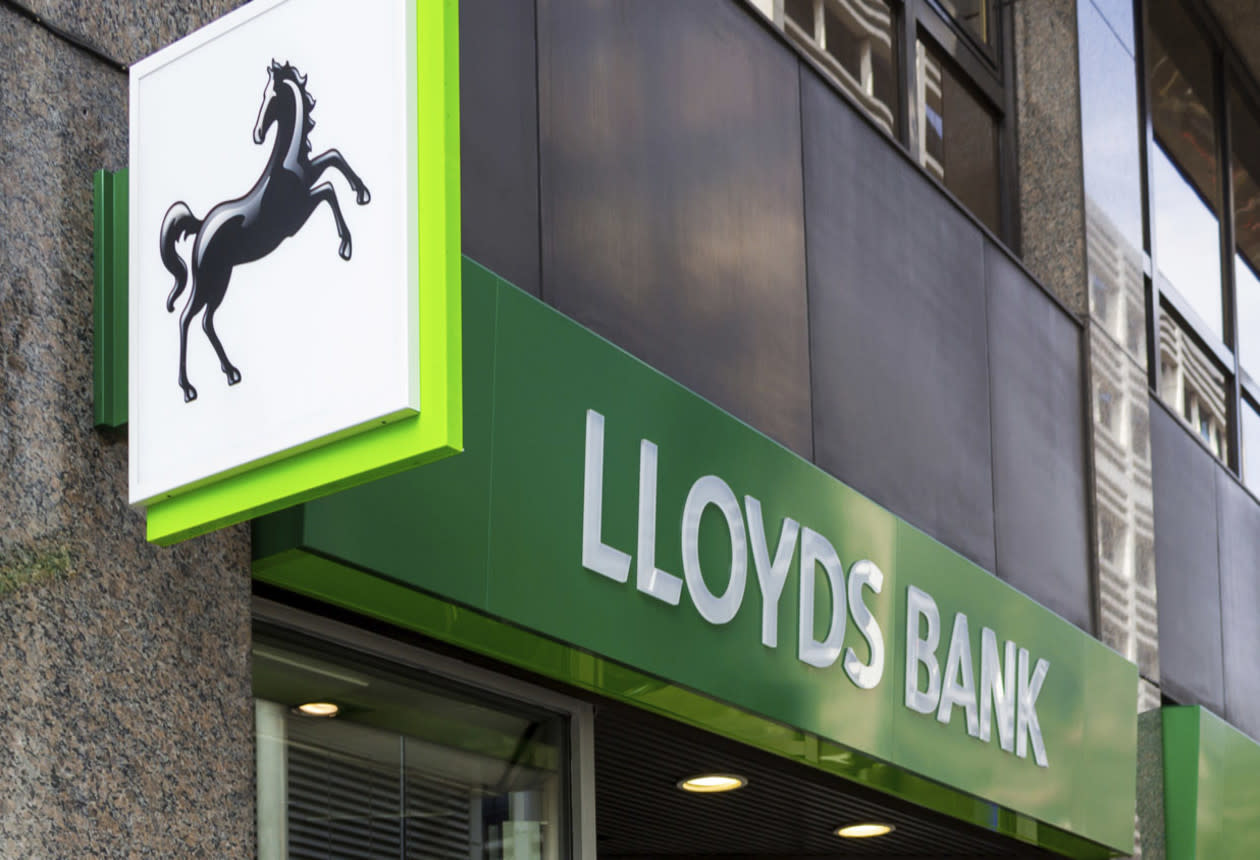Lloyds reported fourth-quarter net income of £4.2bn, a drop of 10.6%. Banking net interest margin came in at 2.98%. That was down from 3.22% as customers shifted to longer-term deposit accounts and mortgage pressure.
Profit before tax of £1.8bn was up 64%, driven almost entirely by a £541mn release of credit impairments back into the profit line.
Lloyds set aside £450mn in preparation for fines resulting from the FCA’s investigation into potential misselling of motor finance.
The board proposed a final dividend of 1.84p and a £2.0bn buyback programme. Accounting for this, the group’s CET1 ratio, a key measure of financial strength, sits at 13.7% well ahead of its target of 13.0%.
For 2024, net interest margin is expected to be higher than 2.9% with a return on tangible equity of around 13% (2023: 15.8%).
The shares were broadly flat in early trading.
Our view
Fourth quarter results were OK, with a few moving parts to unpick. A beat on profit before tax was driven by a single large creditor repaying a loan that had previously been written down. Strip that out and there was a bit of revenue weakness, offset by strong medium-term guidance.
Headlines will focus on the £450mn set aside for potential fines relating to mis-selling motor finance. Lloyds is more exposed than peers, and if £450mn is enough to cover what’s to come then it’ll be a better result than many had feared. But we don’t have any real detail, so there is a risk any penalty could be higher.
Lloyds has a focus on traditional lending, so net interest margin (NIM - a measure of profitability in borrowing/lending) is key. Things look to have peaked early last year, but the pace of decline is stabilising and guidance for 2024 suggests only a small drop from fourth-quarter levels.
NIM’s been under pressure from several angles - but we expect some to ease over the next year or so.
Mortgages issued over the pandemic are coming up for renewal at less profitable levels. This will remain a headwind in 2024 but should start to tail off as we move through the year. There’s also an ongoing impact from consumers shifting to longer term savings accounts, in search of better rates. But the pace of switching looks to be easing, good news for Lloyds.
The structural hedge has the potential to be a key driver of income over the medium term. This can be thought of as a bond portfolio, and as the bank rolls from low yielding contracts written over the past few years onto higher yielding ones, income is expected to get a significant boost.
The flip side of the business model is higher exposure to potential loan defaults. For now, the UK consumer is remaining resilient to cost pressures and Lloyds has one of the higher quality asset portfolios. But this remains a risk to monitor.
Very aware of its reliance on traditional financing, Lloyds has invested heavily in its other income plays (credit card fees, insurance, investment management). This should provide an income tailwind when rates aren’t as supportive, we’ll be looking to see more progress over 2024.
Capital levels are strong and support returns to shareholders over the next few years. With an attractive valuation, Lloyds is one of our preferred plays in the sector. But we'd warn the near-term economic environment is uncertain and no returns are guaranteed.
Environmental, Social and governance (ESG) risk
The financials sector is medium-risk in terms of ESG. Product governance is the largest risk for most companies, especially those in the US and Europe with enhanced regulatory scrutiny. Data privacy and security is also an increasingly important risk for banks and diversified financial firms. Business ethics, ESG integration and labour relations are also worth monitoring.
According to Sustainalytics, Lloyds’ management of material ESG issues is strong.
The FCA’s investigation into historic auto-lending practices between 2007 and 2021 is a risk for Lloyds. Provisions have been taken but the scale of the potential impact is still largely unknown, more details should arise later in the year. There’s room for improvement in product governance and responsible marketing, though it demonstrates strong progress in integrating ESG factors into asset management and corporate financing.
ESG data sourced from Sustainalytics.
Lloyds key facts
All ratios are sourced from Refinitiv, based on previous day’s closing values. Please remember yields are variable and not a reliable indicator of future income. Keep in mind key figures shouldn’t be looked at on their own – it’s important to understand the big picture.
This article is original Hargreaves Lansdown content, published by Hargreaves Lansdown. It was correct as at the date of publication, and our views may have changed since then. Unless otherwise stated estimates, including prospective yields, are a consensus of analyst forecasts provided by Refinitiv. These estimates are not a reliable indicator of future performance. Yields are variable and not guaranteed. Investments rise and fall in value so investors could make a loss.
This article is not advice or a recommendation to buy, sell or hold any investment. No view is given on the present or future value or price of any investment, and investors should form their own view on any proposed investment. This article has not been prepared in accordance with legal requirements designed to promote the independence of investment research and is considered a marketing communication. Non-independent research is not subject to FCA rules prohibiting dealing ahead of research, however HL has put controls in place (including dealing restrictions, physical and information barriers) to manage potential conflicts of interest presented by such dealing. Please see our full non-independent research disclosure for more information.


